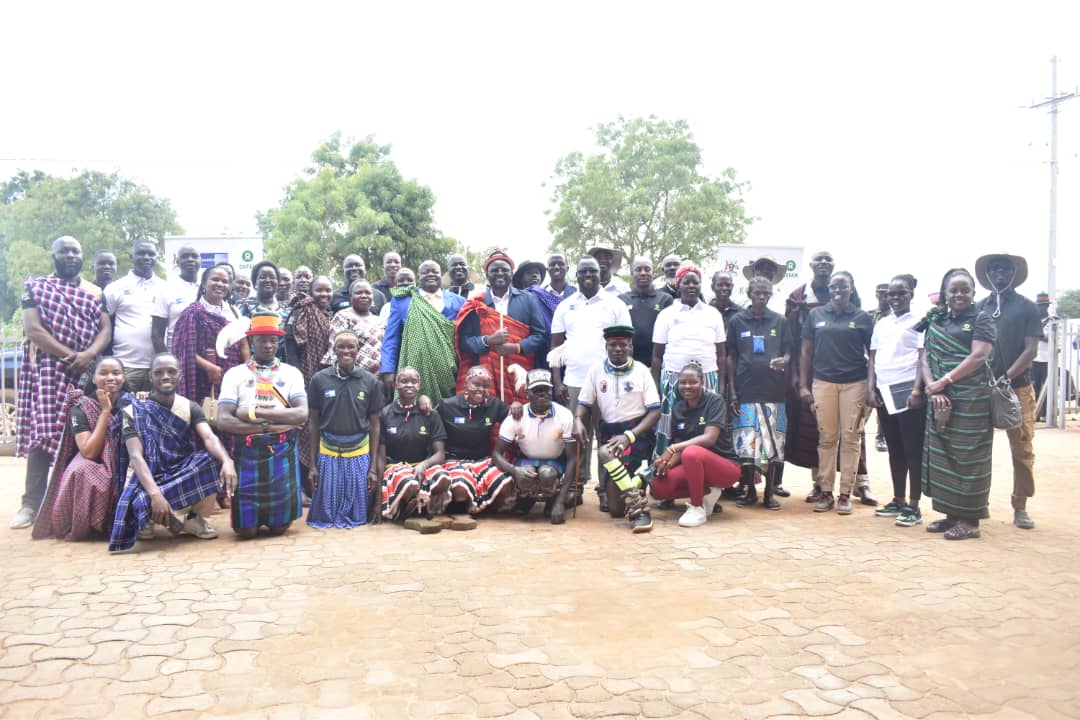
By Richard Onapatum
Kotido - In Uganda’s northeastern frontier, where the land is dry and the challenges are deep-rooted, a new initiative is offering a fresh promise of hope. The Karamoja Agro-Pastoral Resilience and Empowerment Project (KAREP) was officially launched in Kotido District, at Ateker Hotel marking a significant step in the region’s fight against food insecurity, climate vulnerability, and economic exclusion.
Funded by the Kane Family and implemented by Oxfam in Uganda in partnership with the Warrior Squad Foundation, KAREP is a three-year, $1.1 million project designed to transform the livelihoods of smallholder farmers across nine districts in Karamoja: Kotido, Kaabong, Karenga, Nabilatuk, Abim, Moroto, Napak, Amudat, and Nakapiripirit.
According to the Uganda Bureau of Statistics and the Integrated Food Security Phase Classification (IPC), the entire Karamoja sub-region is currently classified in Phase 3 (Crisis). Over 600,000 people face acute food insecurity, exacerbated by erratic rainfall, prolonged droughts, and rising temperatures that threaten both pastoral and agricultural systems.
A Community-Led Vision for Resilience
The launch event in Kotido drew local leaders, development partners, and community members who gathered to witness what many described as a turning point for Karamoja. Among the speakers was Nakong Night Teddy, Project Officer at Warrior Squad Foundation, whose remarks captured the spirit of the initiative.
“This project is not just about agriculture—it’s about restoring dignity, building resilience, and empowering communities to take charge of their future.” and will be implemented in the subcounties of napupum and Kapeta.
KAREP’s approach is rooted in community participation. It integrates Village Savings and Loan Associations (VSLA) into Agricultural Producer and Farmer Field School (APFFS) activities, rehabilitates degraded ecosystems through Cash for Work programs, and supports livestock disease management and rangeland governance.
The emphasis on climate-smart agriculture is particularly timely. With traditional farming methods increasingly failing under the pressure of climate change, KAREP introduces adaptive techniques that improve soil health, conserve water, and enhance productivity without compromising the environment.
Prioritizing Women and Youth
One of KAREP’s defining features is its commitment to inclusive development. Francis Odokorach, Country Director of Oxfam in Uganda, described the project as a blueprint for locally led, gender-responsive, and climate-smart transformation.
“We are co-creating long-term strategies that empower people to adapt, innovate, and thrive in the face of adversity.”
This focus is especially critical in Karamoja, where women and young people often bear the brunt of poverty and climate shocks. By equipping them with tools, training, and financial literacy, KAREP aims to unlock their potential as agents of change.
The project also seeks to build institutional capacity among district technical teams, Water User Committees, Community Animal Health Workers, and Producer Marketing Groups—ensuring that local systems are equipped to sustain progress beyond the project’s lifespan.
Government Endorsement and Local Ownership
The launch was attended by Charles Ichogor, Resident District Commissioner (RDC) of Kotido, who pledged full government support and called for collective action.
“KAREP is more than a project; it is a promise of hope and resilience for the people of Karamoja. I urge all stakeholders to take ownership and work together to protect our environment and empower our communities.”
His remarks underscored the importance of community engagement and accountability. With many development projects in the region struggling to achieve long-term impact, Ichogor emphasized that sustainability must be built into every intervention.
Local leaders echoed this sentiment, highlighting the need for transparency, regular monitoring, and inclusive decision-making. Several community members expressed optimism that KAREP’s participatory model would foster trust and ensure that benefits reach those most in need.
A Strategic Shift Toward Long-Term Resilience
KAREP represents a significant departure from the emergency relief efforts that have long dominated development work in Karamoja. Instead of short-term fixes, the project focuses on resilience-building, economic empowerment, and environmental restoration.
This strategic shift is aligned with global calls for climate adaptation and sustainable development. As Uganda grapples with the realities of climate change, projects like KAREP offer a roadmap for how vulnerable regions can transition from crisis to stability.
Stakeholders hope that KAREP will serve as a catalyst for broader change, inspiring similar initiatives across Uganda and the East African region. By demonstrating the power of locally led, inclusive, and climate-smart development, the project could redefine how humanitarian and development actors engage with fragile ecosystems and communities.
A Launch Marked by Celebration and Commitment
The launch event itself was a vibrant affair. Traditional dances, poetry, and storytelling brought the community together in celebration.
The energy was palpable. For many, KAREP is more than a development project—it’s a symbol of possibility. As the attendees left they were renewed with hope and a shared commitment to building a better future.